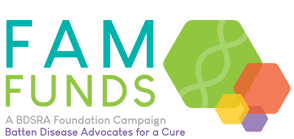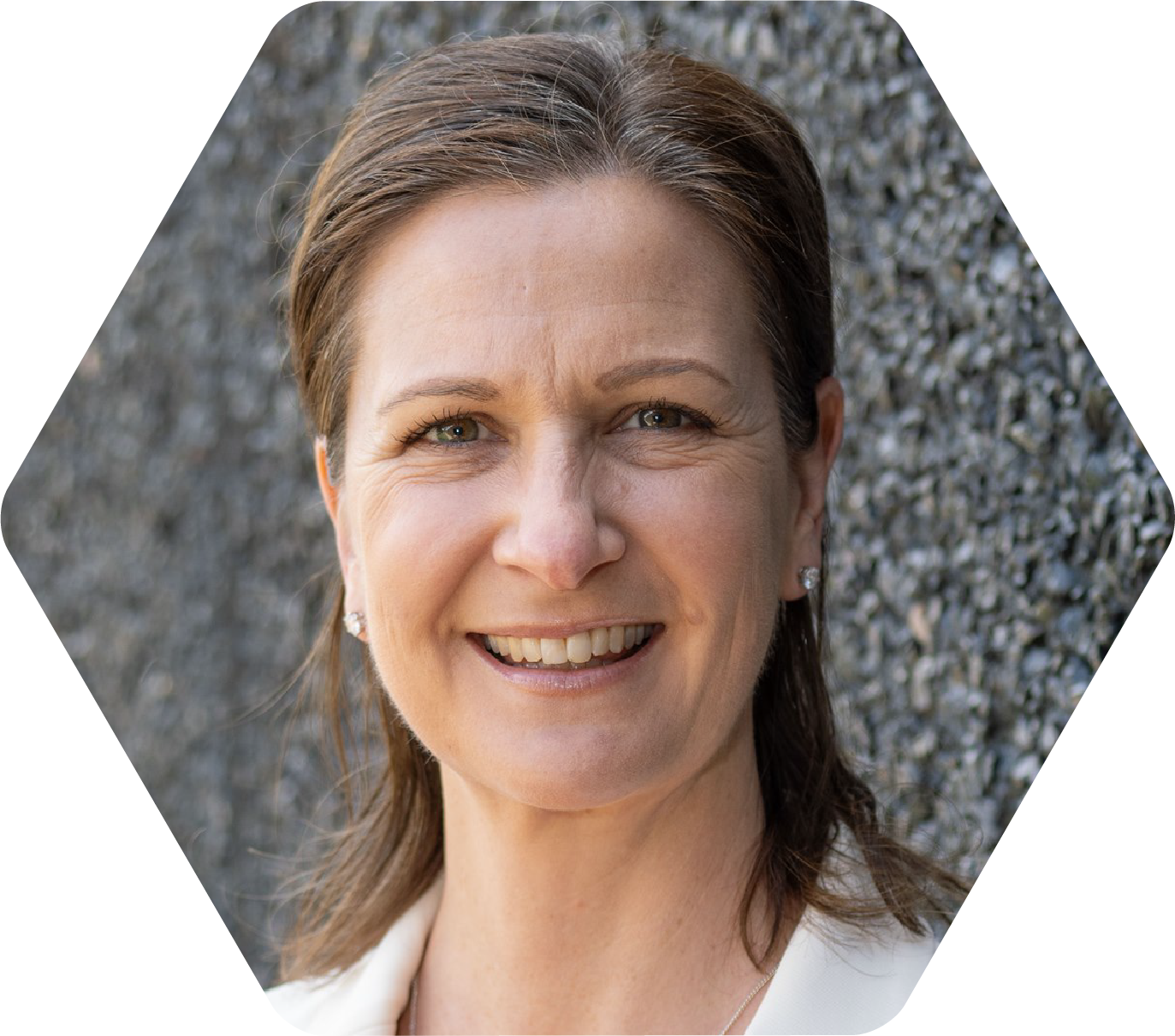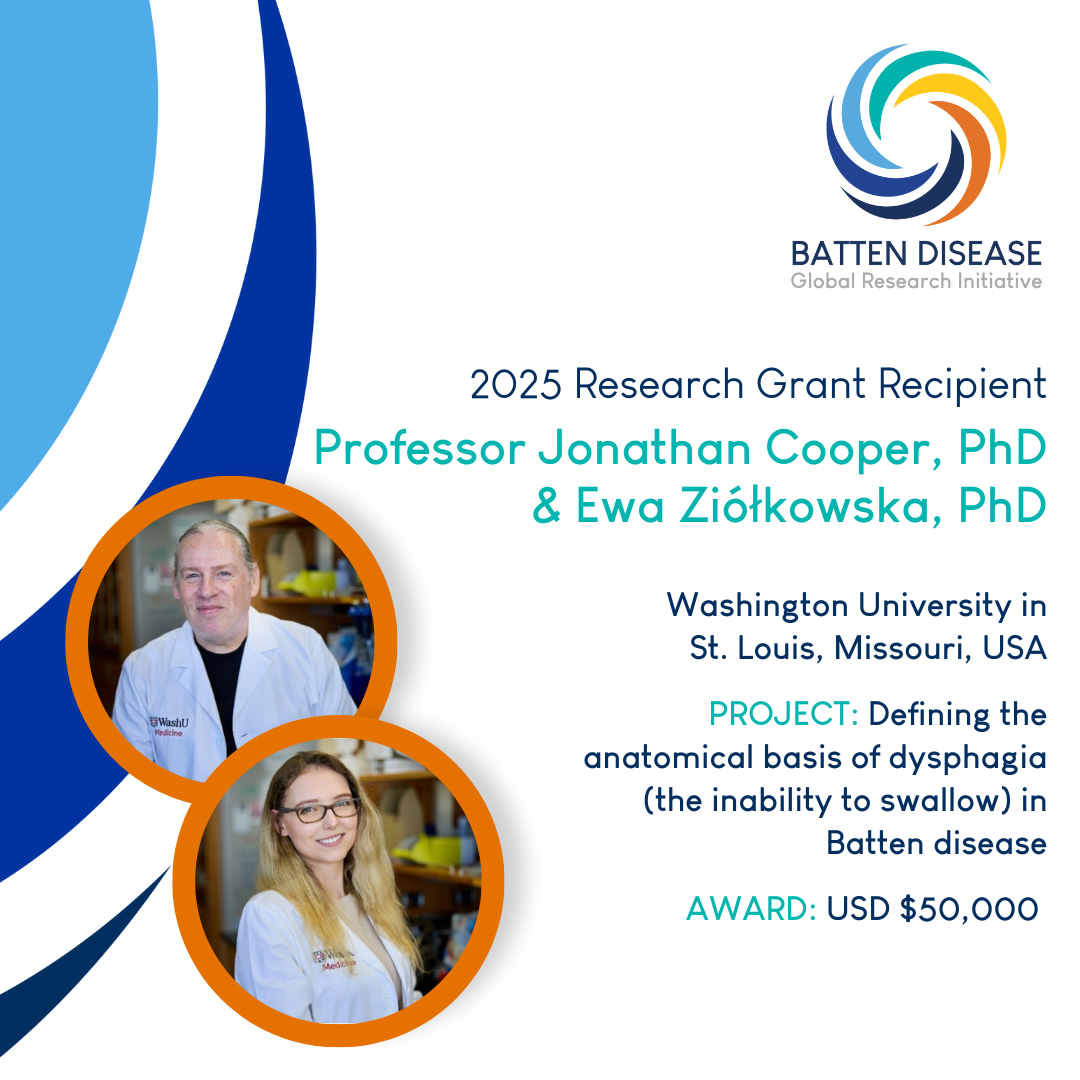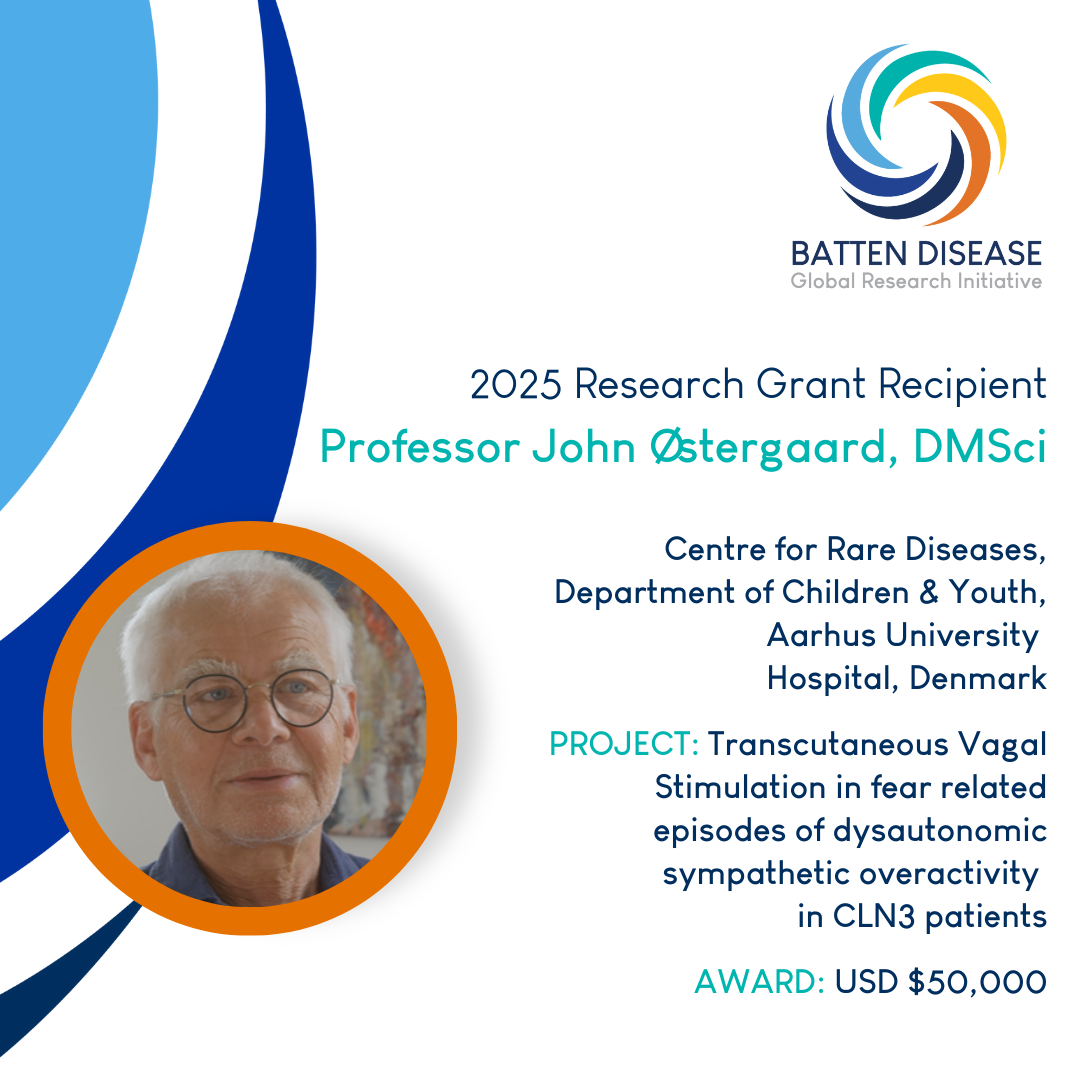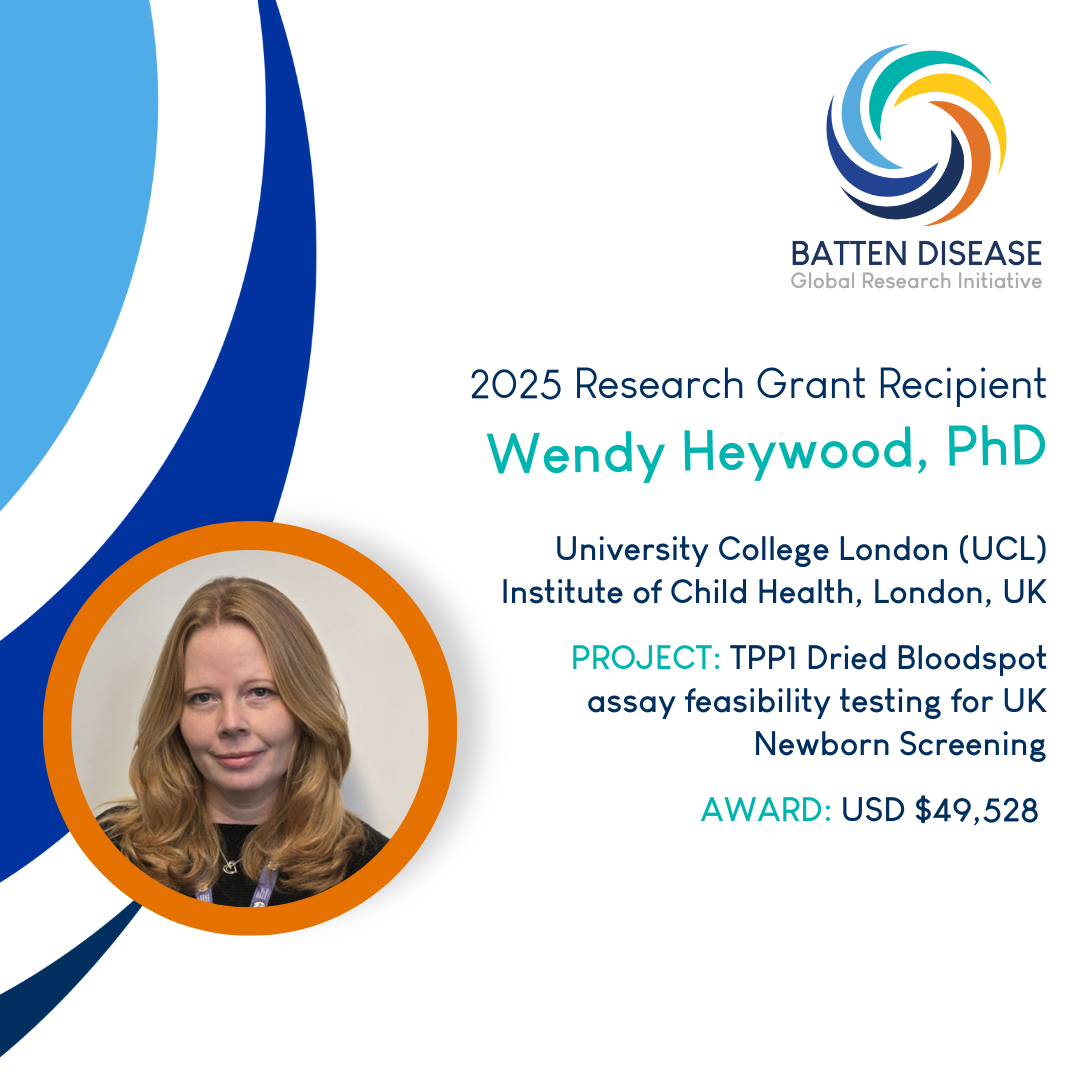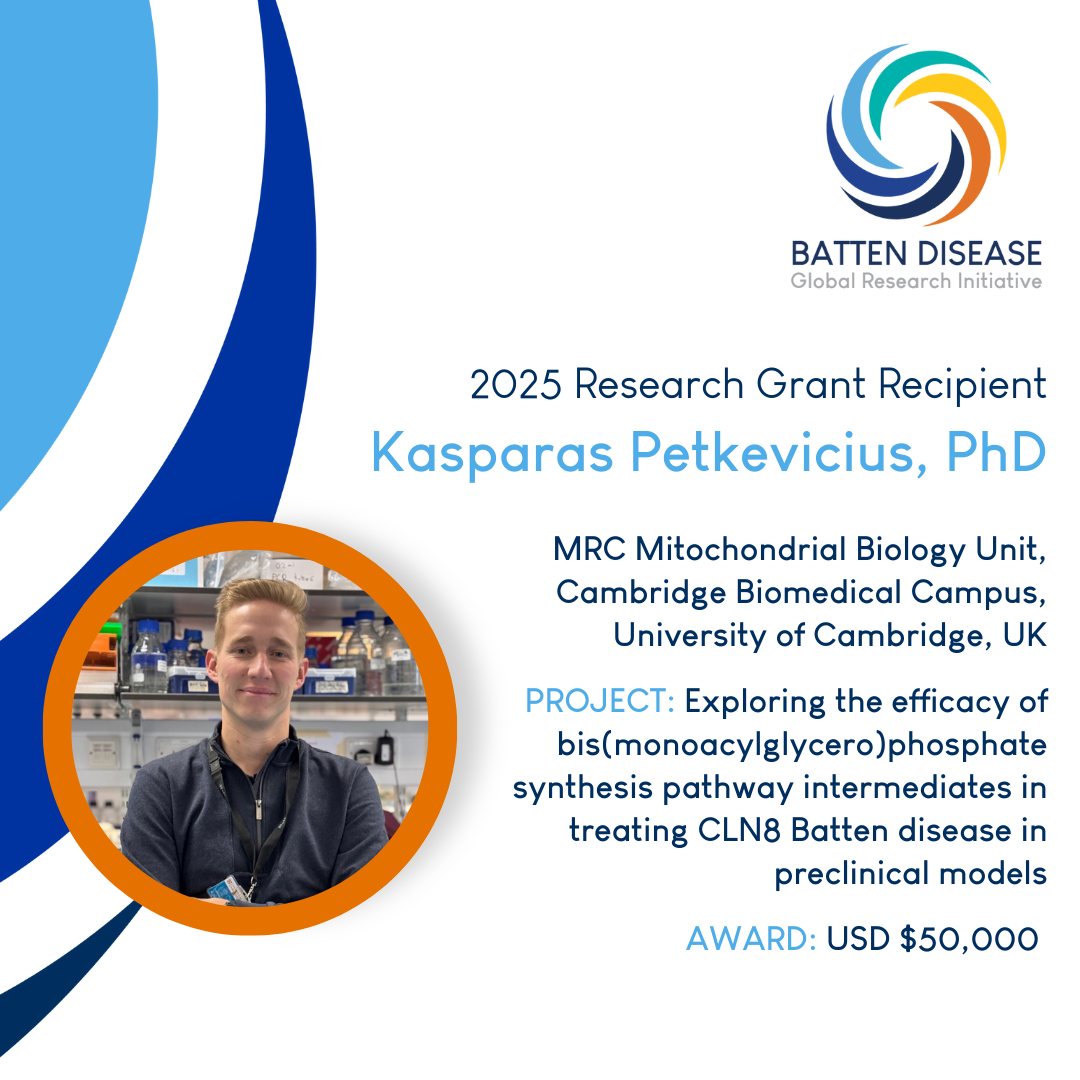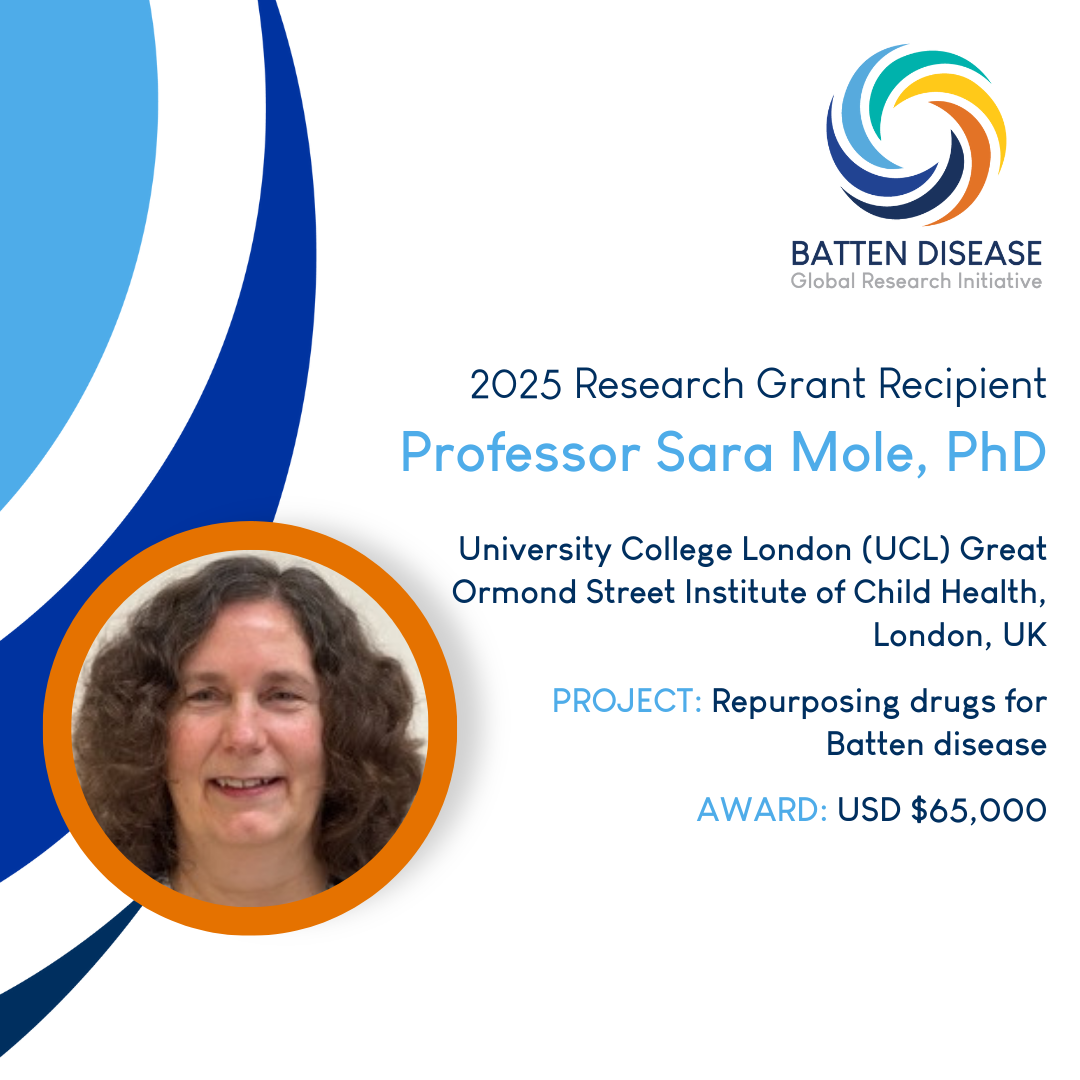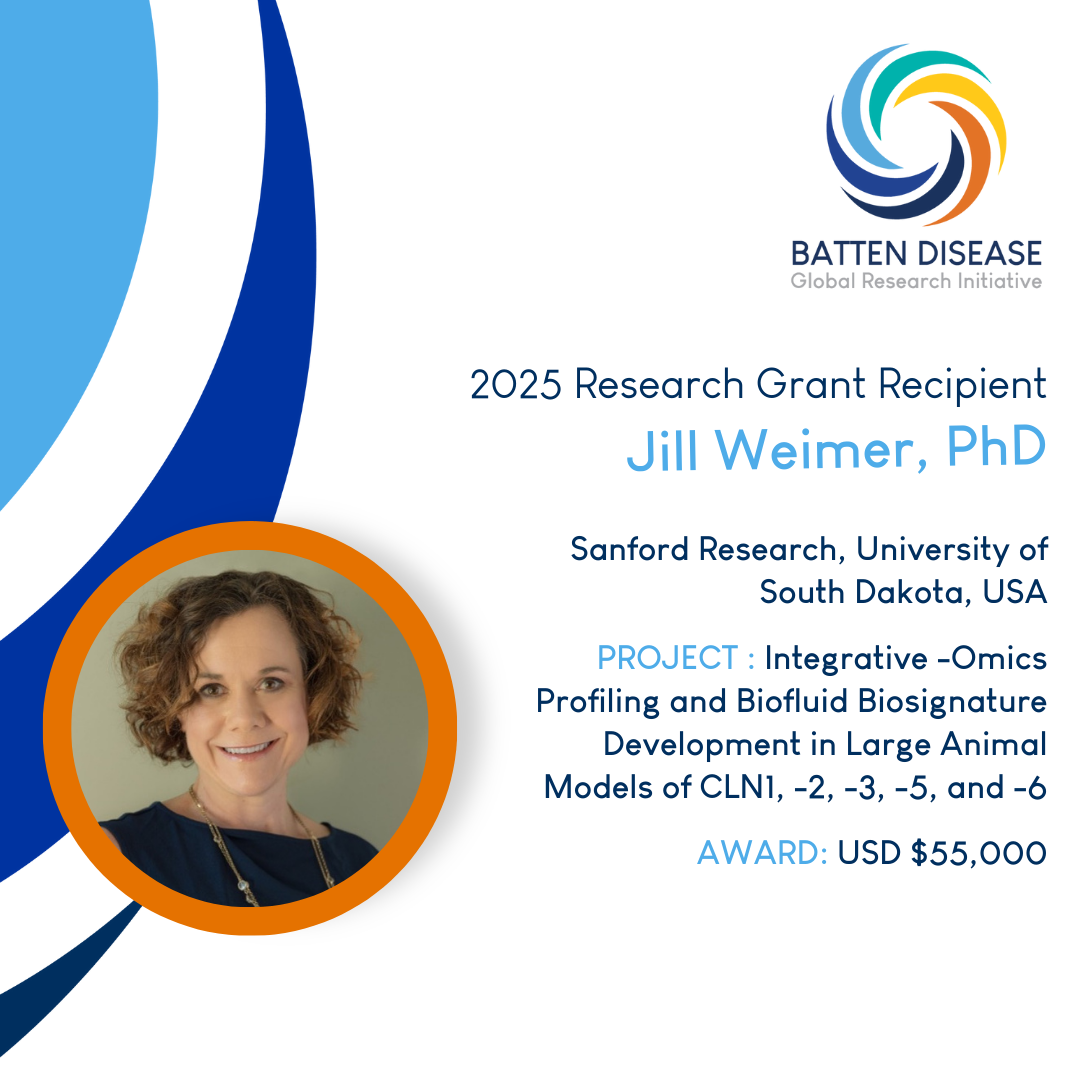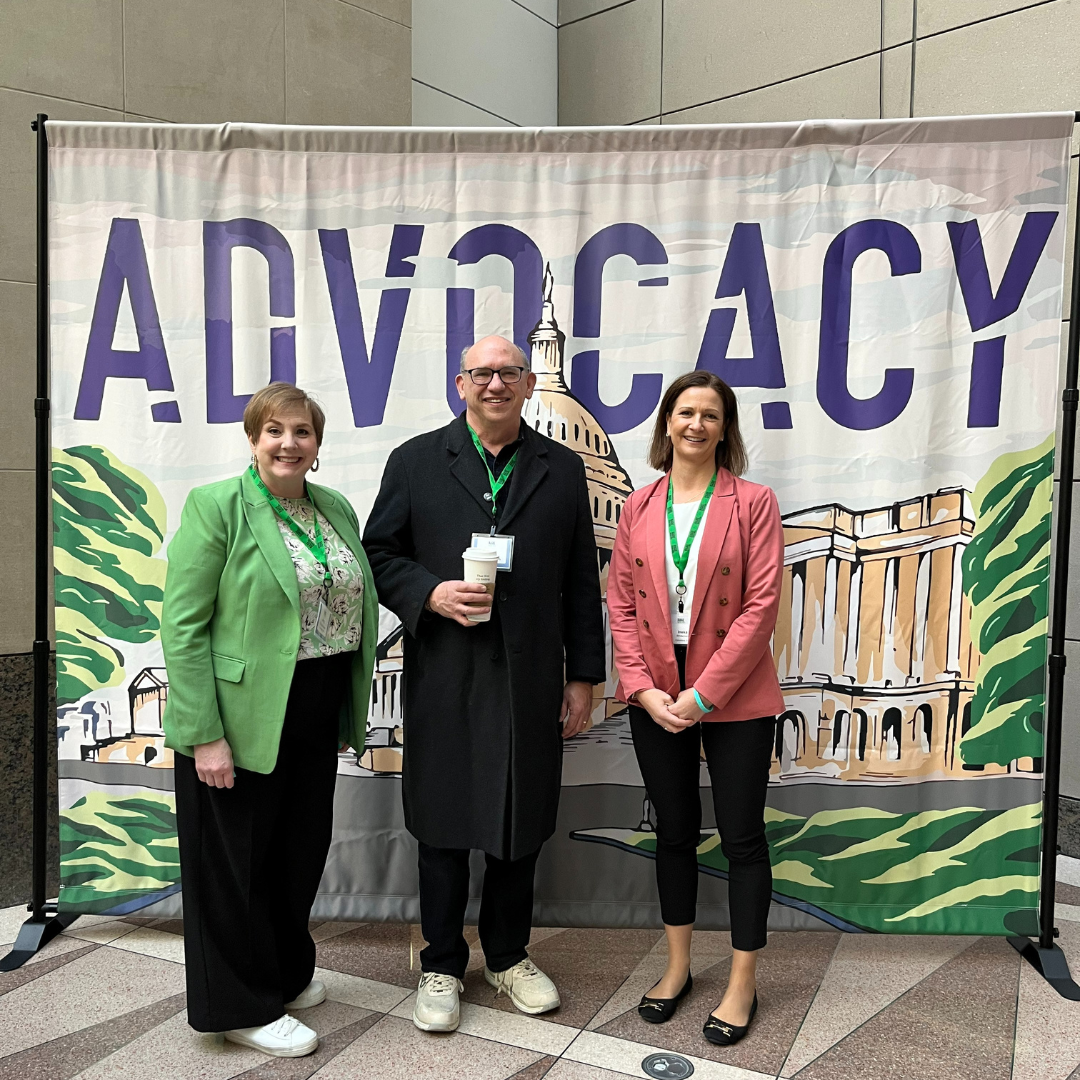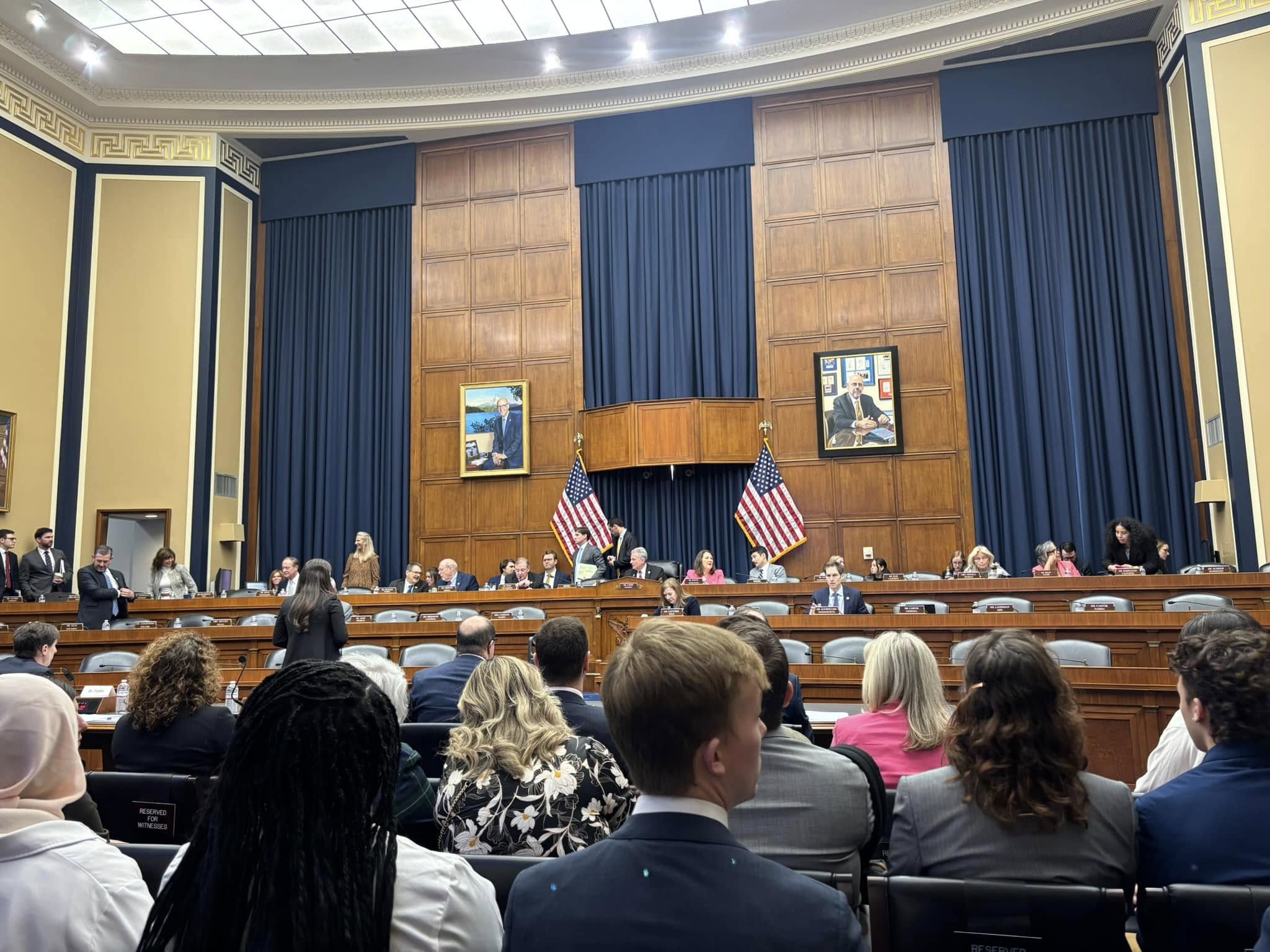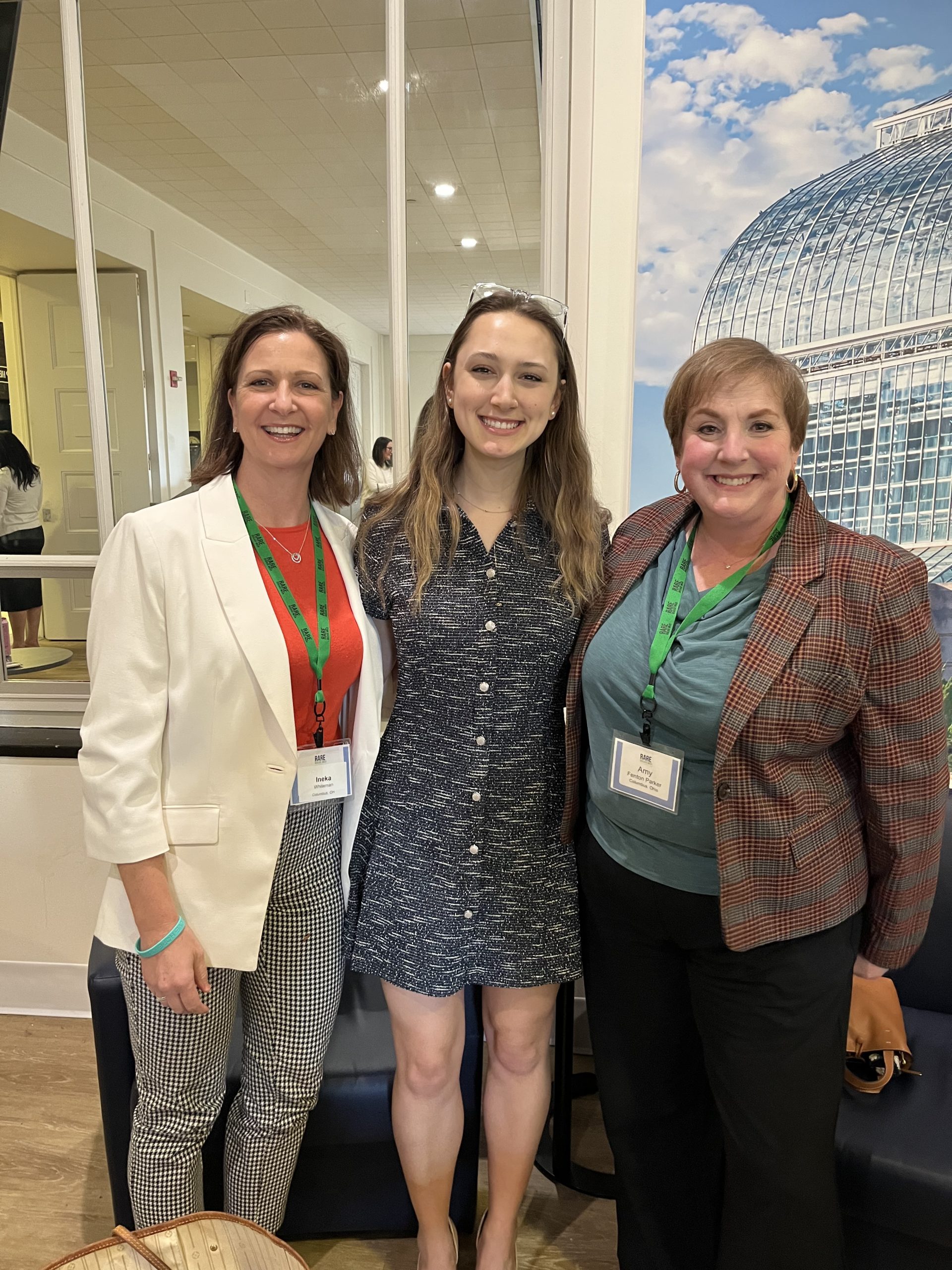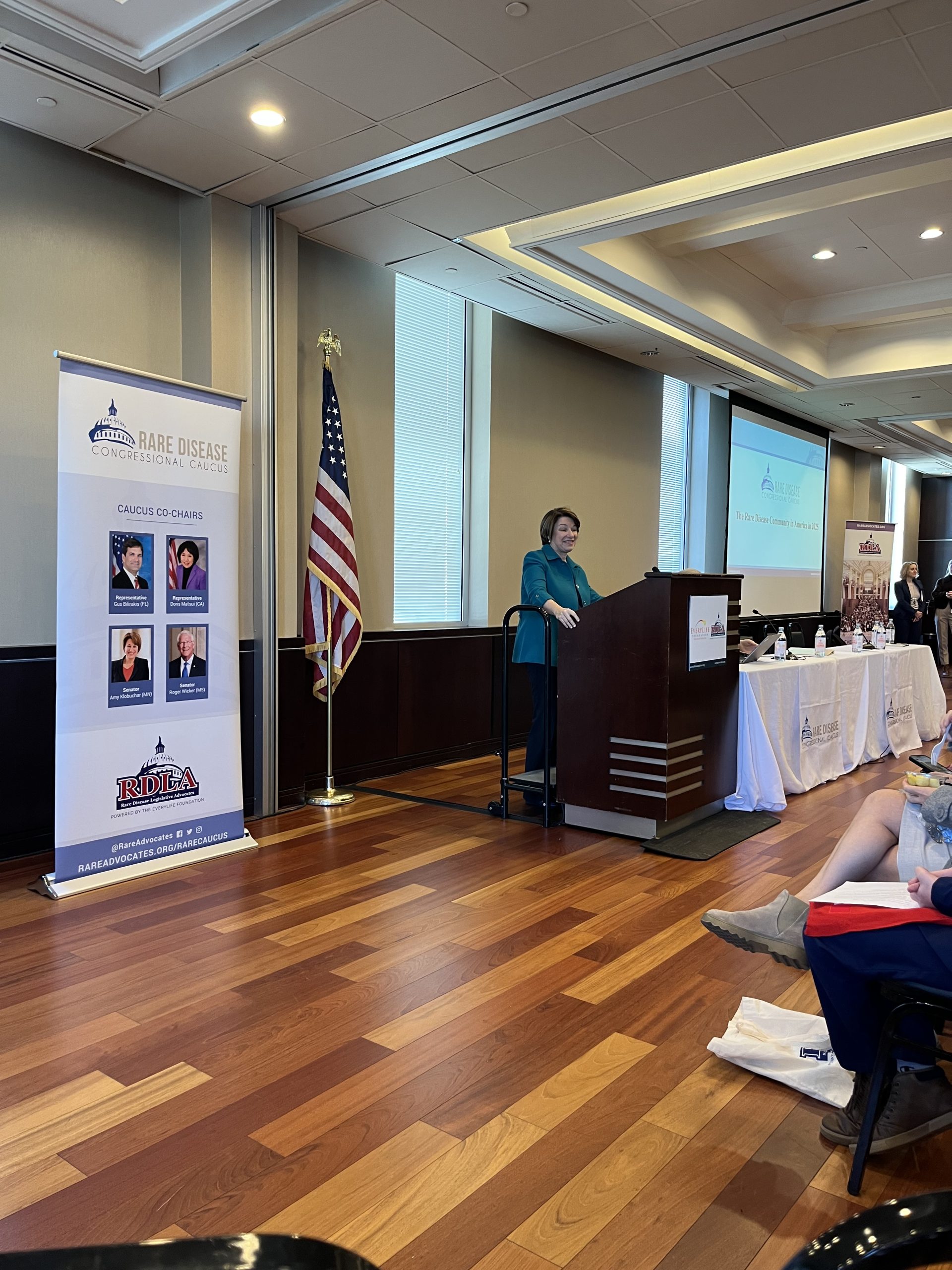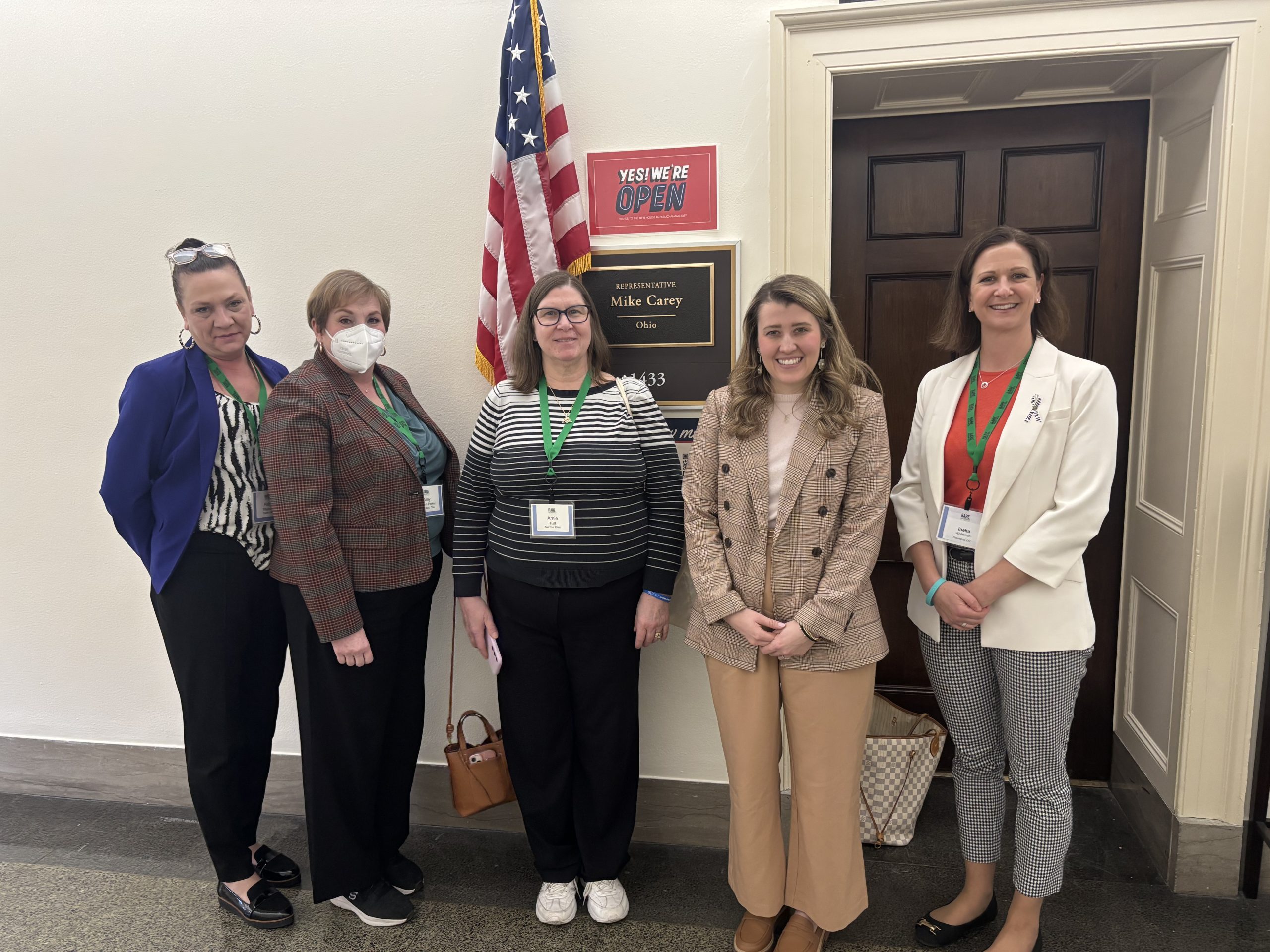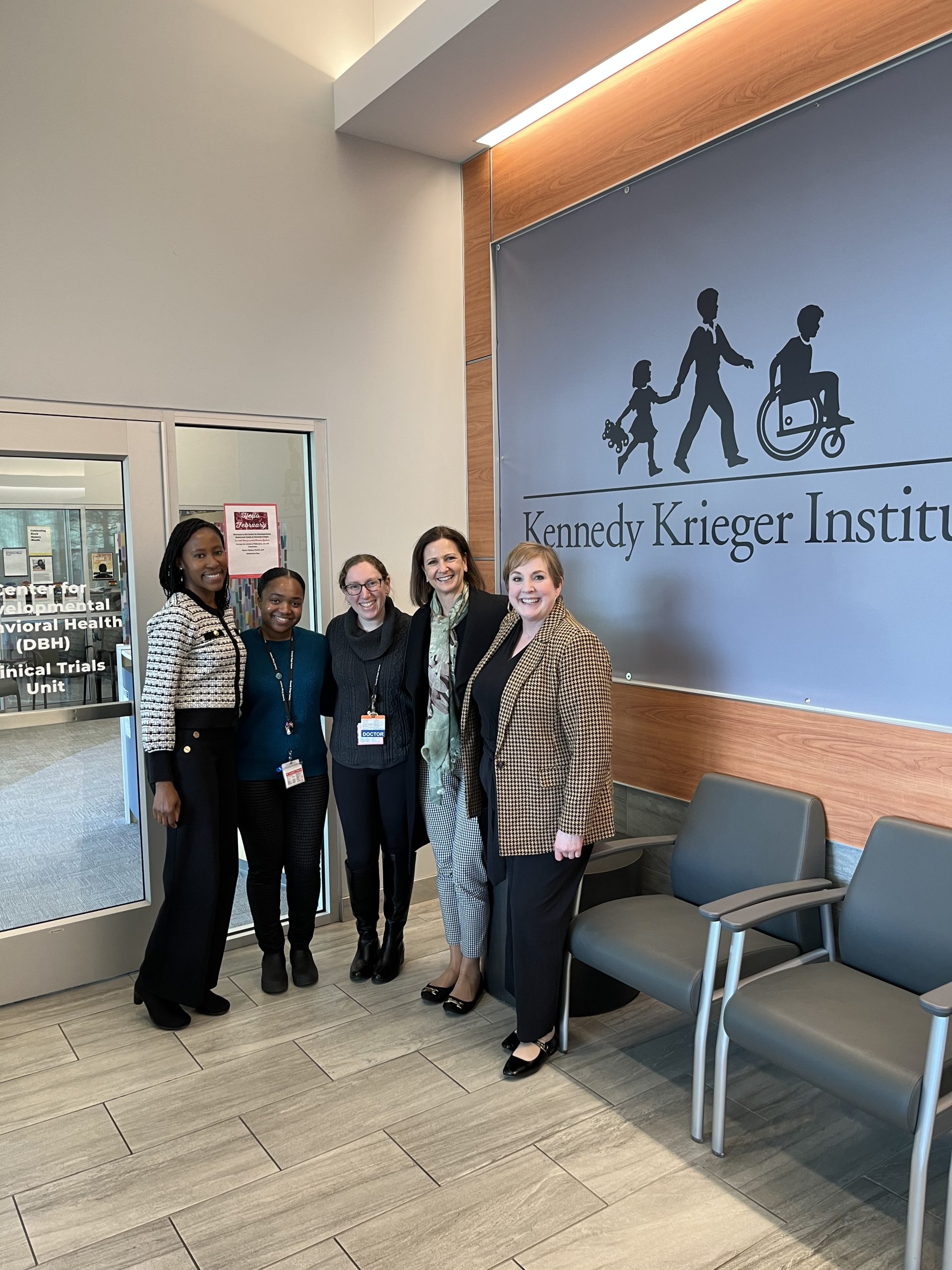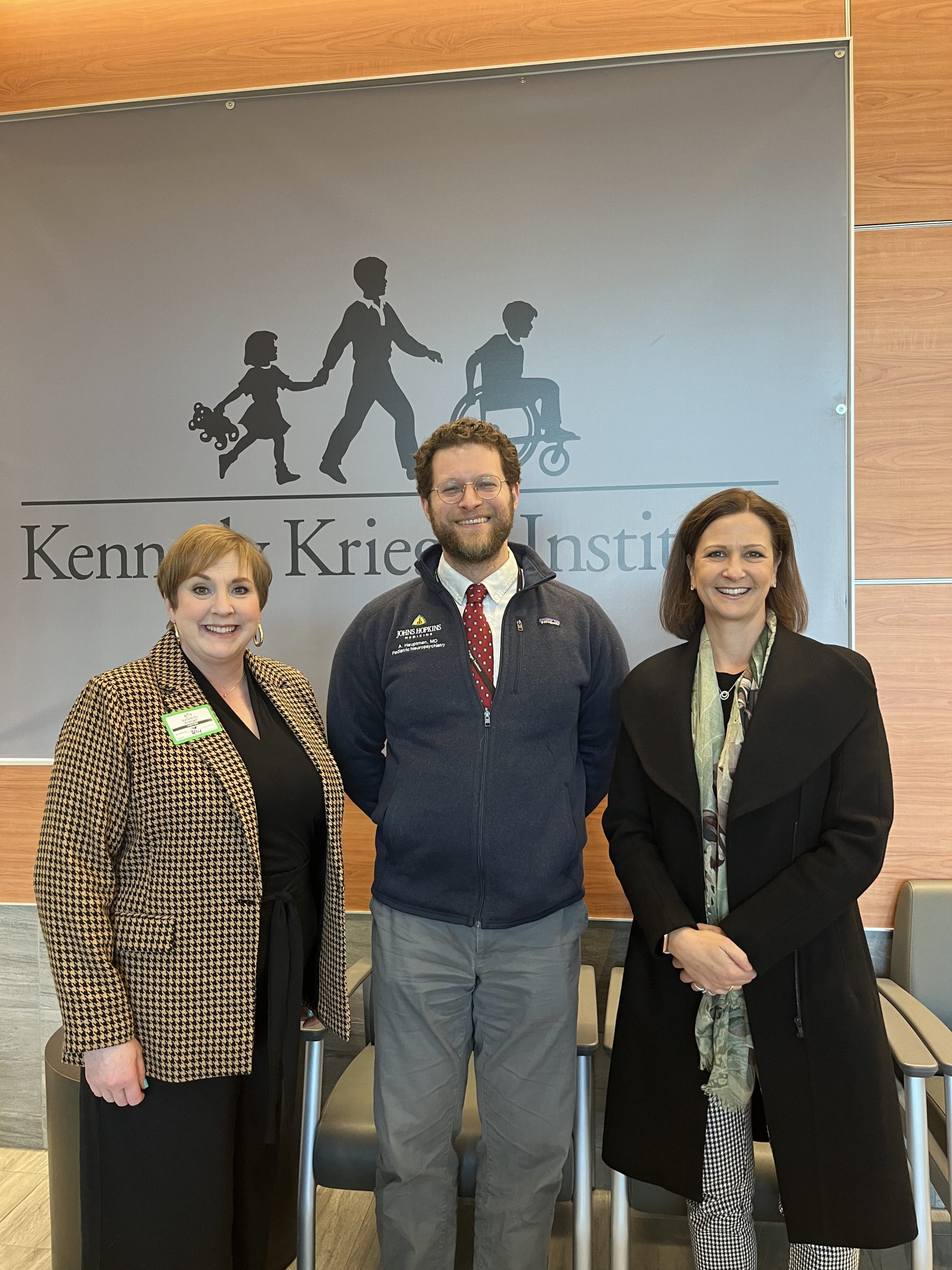It’s time for Batten disease research updates! BDSRA Foundation’s Head of Research & Medical Affairs Dr. Ineka Whiteman breaks down Batten disease clinical program updates, research news & opportunities, and resources in her monthly column, as seen in BDSRA’s monthly newsletter, The Illuminator.
February and March have been brimming with research activities, conferences, and exciting announcements!
Batten Disease Global Research Initiative Inaugural Grants Announced!
Starting with our most significant news, we were thrilled to announce the inaugural Batten Disease Global Research Initiative (BDGRI) Research Grants winners. In our press release on March 18, we were proud to reveal the recipients, awarding a total of USD $320,000 to six groundbreaking projects worldwide.
Read the full announcement here.
Rare Disease Week
Amy and I, along with a Batten disease grandfather, Mitch Larson from Nebraska, had the privilege of participating in Rare Disease Week on Capitol Hill in Washington D.C. Hosted by the EveryLife Foundation and Rare Disease Legislative Advocates (RDLA), this annual event unites advocates from across the country to make their voices heard by their Members of Congress. Throughout the week, participants heard from leaders in the field on policy proposals impacting the rare disease community, including:
- Support for steady and robust leadership, federal biomedical research funding, and public health agencies.
- Reauthorization of the Rare Pediatric Disease Priority Review Voucher Program.
- Inclusion of the Accelerating Kids’ Access to Care Act (AKACA).
Right now, Congress is juggling three separate but intertwined legislative processes related to funding government operations, each of which has direct implications for these policies: the Continuing Resolution, the Fiscal Year (FY) 2026 Appropriations Cycle, and Budget Reconciliation. The EveryLife Foundation has provided a brief overview to help break down what is happening, what is at stake, and what can be done to support the resources and services that drive our rare disease research, therapy development, and access to care. You can read the review here:
To check out the highlights from our Week on Capitol Hill check out the links below:
Center of Excellence Visit – Kennedy Krieger Institute
While in D.C., we had an opportunity to visit the Batten Disease Clinical Centers of Excellence at Kennedy Krieger Institute. Witnessing the groundbreaking work being done by dedicated clinicians, researchers, and care teams across our CoE network is always inspiring.
From cutting-edge research to compassionate, family-centered care, the Kennedy Krieger team is truly leading the way in advancing standards of care, and clinical research, and supporting the U.S. and global Batten disease community. A heartfelt thank you to Center Director Dr. Erika Augustine, Dr. Aaron Hauptman, Dr. Heather Brown, Dr. Jeff Doyle, and Nadia Moore for hosting us! We are grateful for your unwavering commitment and collaboration.
Highlights from the 2025 Gordon Research Conference on Lysosomal Diseases – March 1-7, Pomona, CA
Held every two years, the Gordon Research Conference (GRC) is focused on cutting-edge and unpublished research. There is always a wonderful turnout from the Batten disease research community (pictured below) and I thoroughly enjoy the opportunity to connect with so many throughout the week-long meeting.
The GRC is designed to foster in-depth discussion, new collaborations, and strengthen existing collaborations among attendees from clinical, academic, and biotech sectors. Key topics this year included novel gene replacement and gene-editing approaches, biomarker discovery, and cellular mechanisms driving disease progression. Sessions delved into how lysosomal function is impaired in various diseases and how this knowledge can inform broader applications in biology and medicine. Emerging areas such as the role of lysosomes in neurodegeneration, energy metabolism, infection, and immunity were also explored.
I was honored to have been invited to present on a Career Mentorship panel, as part of the Gordon Research Seminar (GRS), a satellite meeting to GRC that provides a platform for young researchers to present their work and engage in discussions on their current projects and future research directions. I enjoyed the opportunity to share my experiences in academic research, the biotech industry, and now in the patient advocacy space—highlighting how my role in Batten disease patient advocacy has, by far, been the most rewarding of these. I hope I inspired some of our young researchers to consider this career pathway sometime in their futures!
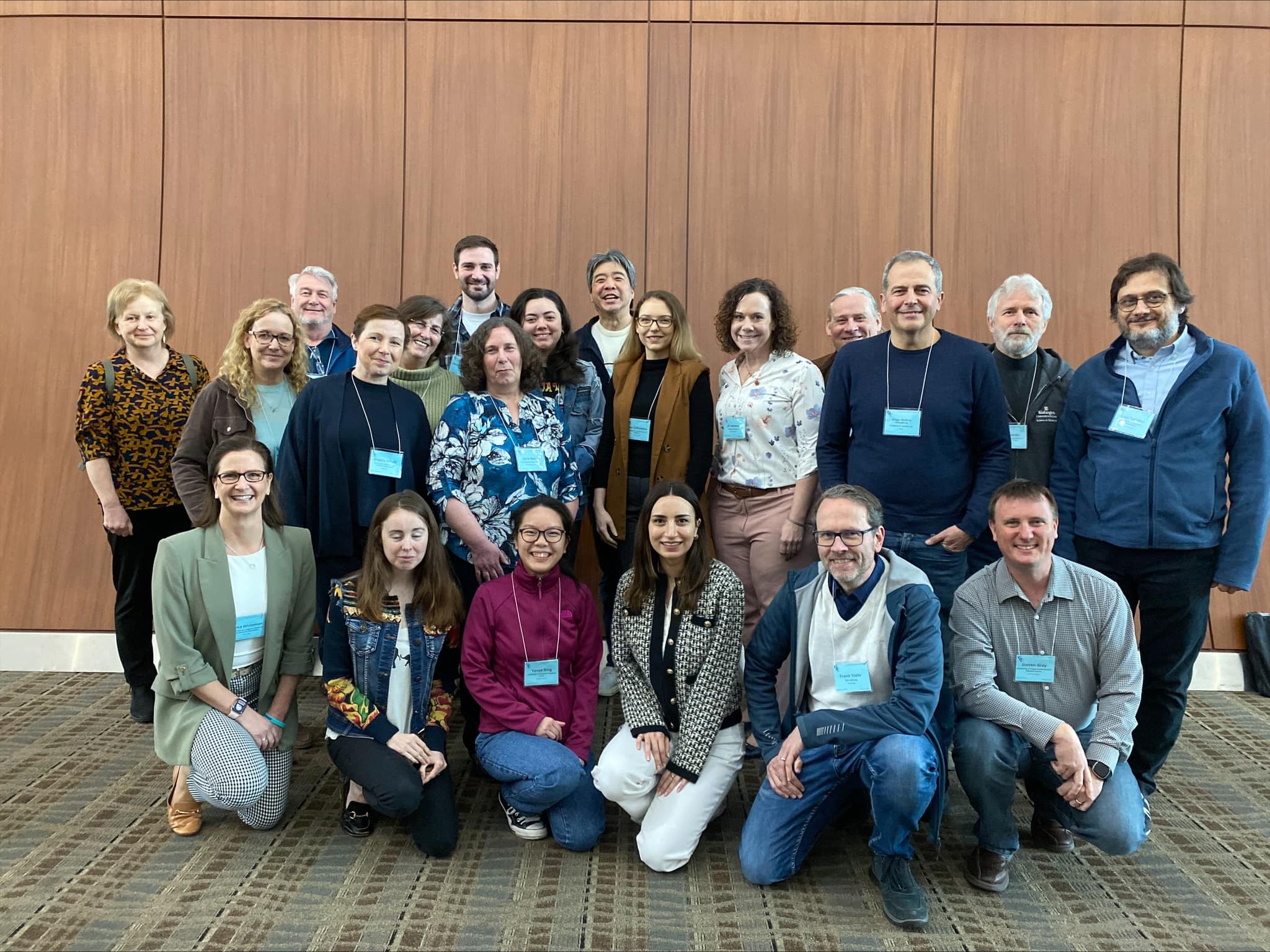
Batten disease researchers, clinicians, and patient advocates worldwide came together at the GRC in California in March.
EVENT
NCL2025 Congress ABSTRACTS and REGISTRATION NOW OPEN!
On behalf of the NCL2025 Organising Committee, we are thrilled to be hosting the 19th International Congress on Neuronal Ceroid Lipofuscinosis (NCL) in the stunning surrounds of the Sunshine Coast, Queensland, Australia. As the premier conference on Batten disease, the bi-annual NCL Congress brings together world-leading researchers, healthcare providers, industry partners, innovators, and patient advocacy leaders from around the globe.
Abstracts and Early-Bird Registrations are now open! Abstracts must be submitted by June 6.
We hope to see you Down Under! Visit www.NCL2025.org for more details.
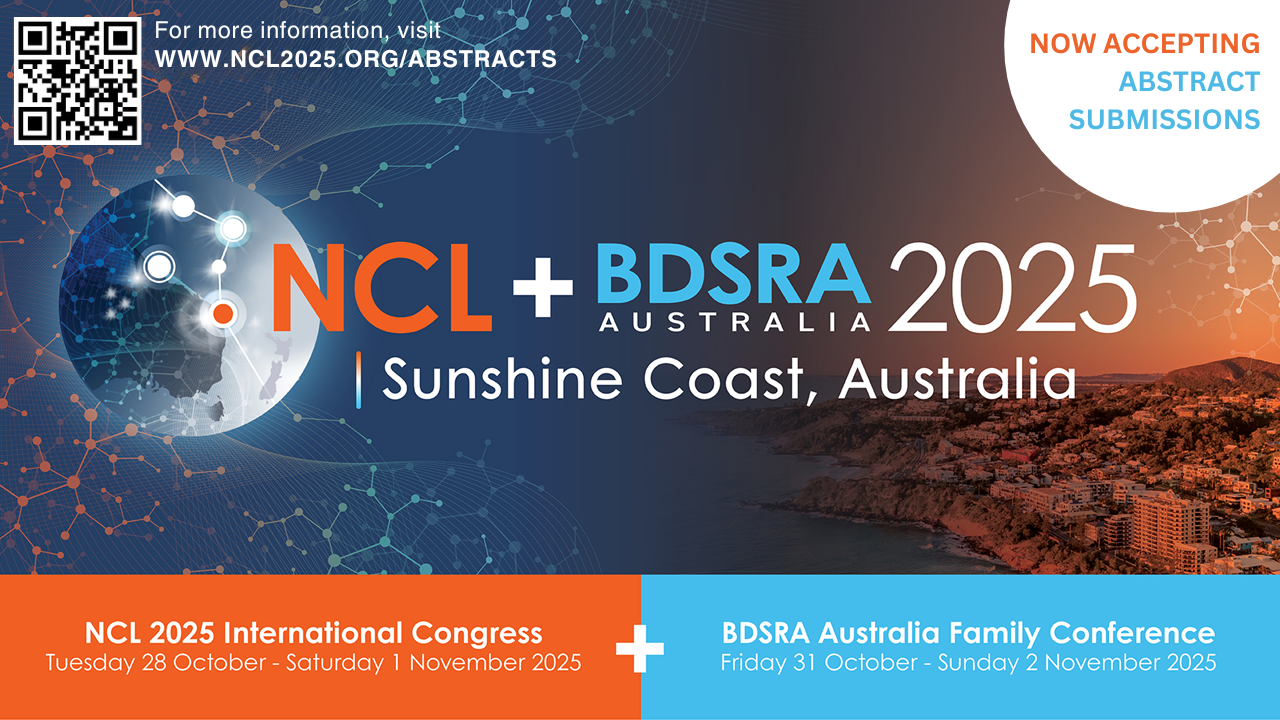
As always, thank you for your support and dedication to our shared mission.
Warm regards,

CLINICAL PROGRAM UPDATES
Clinical Trial Tracker
Keep up-to-date with the latest clinical trial and natural history study news with our Clinical Studies Chart on BDSRA’s website. Check it out by clicking here.
Tern Therapeutics Advances Pipeline and Presents Positive Clinical Data for TTX-381 and TTX-181 Gene Therapies for CLN2 Batten Disease at 21st Annual WORLDSymposium
Tern Therapeutics has made significant progress in its clinical trials for TTX-381 and TTX-181, investigational gene therapies for CLN2 Batten disease aimed at addressing vision loss and neurological symptoms, respectively. Key milestones and positive clinical data were presented at the 21st Annual WORLDSymposium in February and shared in a company press release (read here).
The Phase I/II trial for TTX-381 has completed enrolment of Cohort 2 and has expanded recruitment at Great Ormond Street Hospital in London, UK. Interim data show a favorable safety profile, increased TPP1 enzyme levels, stabilization or improvement of photoreceptor integrity, and improvements in functional vision. Additionally, a two-year study of CNS-directed gene therapy (TTX-181) demonstrates a sustained increase in TPP1 enzyme correlating with improvements in multiple clinically meaningful measures of efficacy, which allowed the patient to discontinue enzyme replacement therapy. FDA has granted Investigational New Drug (IND) clearances for both therapies, marking a crucial step forward in their development.
Read Tern Therapeutics’ Letter to the CLN2 Batten Disease Community here.
PUBLICATION HIGHLIGHTS – February-March 2025
Vacuolated lymphocytes: a diagnostic biomarker for CLN3-related Batten disease.
Cruz-Pimentel M, Parameswarappa DC, Ryu G, Klatt R, Vincent A.
Can J Ophthalmol. 2025 Mar 20:S0008-4182(25)00114-0. doi: 10.1016/j.jcjo.2025.02.021. Online ahead of print.
PMID: 40122120
Enzyme Replacement Therapy in CLN2-Associated Retinopathy.
Priglinger C, Courage C, Maier EM.
Klin Monbl Augenheilkd. 2025 Mar;242(3):213-218. doi: 10.1055/a-2528-7886. Epub 2025 Mar 24. PMID: 40127655 Review.
Intravitreal Enzyme Replacement Therapy Slows Retinopathy in Late Infantile Ceroid Lipofuscinosis Type 2.
Priglinger CS, Courage C, Lotz-Havla AS, Gerhardt M, Ehrt O, Kurz M, Pudritz H, Rudolph G, Jackson CB, Maier EM.
Neuropediatrics. 2025 Apr;56(2):142-146. doi: 10.1055/a-2510-5592. Epub 2025 Jan 7. PMID: 39776429
Tagless LysoIP for immunoaffinity enrichment of native lysosomes from clinical samples.
Saarela D, Lis P, Gomes S, Nirujogi RS, Dong W, Rawat E, Glendinning S, Zeneviciute K, Bagnoli E, Fasimoye R, Lin C, Nyame K, Boros FA, Zunke F, Lamoliatte F, Elshani S, Jaconelli M, Jans JJ, Huisman MA, Posern C, Westermann LM, Schulz A, van Hasselt PM, Alessi DR, Abu-Remaileh M, Sammler EM.
J Clin Invest. 2024 Dec 26;135(4):e183592. doi: 10.1172/JCI183592. PMID: 39724071; PMCID: PMC11827837.
TRAM-LAG1-CLN8 family proteins are acyltransferases regulating phospholipid composition.
Sheokand PK, James AM, Jenkins B, K Lysyganicz P, Lacabanne D, King MS, Kunji ERS, Siniossoglou S, Koulman A, Murphy MP, Petkevicius K.**
Sci Adv. 2025 Feb 21;11(8):eadr3723. doi: 10.1126/sciadv.adr3723. Epub 2025 Feb 19.
PMID: 39970228
** 2025 Batten Disease Global Research Initiative Grant Recipient
Purifying and profiling lysosomes to expand understanding of lysosomal dysfunction-associated diseases.
Shilatifard A, Ben-Sahra I.
J Clin Invest. 2025 Feb 17;135(4):e188507. doi: 10.1172/JCI188507.
PMID: 39959975
Neuronal Ceroid Lipofuscinosis-Concepts, Classification, and Avenues for Therapy.
Zhang Y, Du B, Zou M, Peng B, Rao Y.
CNS Neurosci Ther. 2025 Feb;31(2):e70261. doi: 10.1111/cns.70261.
PMID: 39925015 Review.
The Batten disease gene Cln3 is required for the activation of intestinal stem cell during regeneration via JAK/STAT signaling in Drosophila.
Yu Z, Yan J, Liu Z, Wang H, Luo G, Chen H.
Front Cell Dev Biol. 2025 Jan 23;13:1508714. doi: 10.3389/fcell.2025.1508714. eCollection 2025.
PMID: 39917569 Free PMC article.

